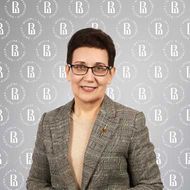- A
- A
- A
- АБB
- АБB
- АБB
- А
- А
- А
- А
- А
- Национальный исследовательский университет «Высшая школа экономики»
- Факультеты
- Факультет экономических наук
- Школа финансов
- Новости
- Соболева О.А., Макеева Е.Ю. и Асланян Г. К. выступили с докладом на тему “The Influence of Corporate Governance Mechanisms on Probability of Fraud Occurrence: Evidence from Russian Companies” на международной конференции EIASM
-
О Школе финансов
- О нас
- Сотрудники
- Аспиранты
-
- Базовые кафедры компаний-партнёров
- Лаборатории
-
Образовательная деятельность
- На академических программах
- На прикладных программах
-
Проекты
-
- Проектная модель обучения 2025/2026 учебный год
- Проектная модель обучения 2024/2025 учебный год
- Проектная модель обучения 2023/2024 учебный год
- Проектная модель обучения 2022/2023 учебный год
- Проектная модель обучения 2021/2022 учебный год
- Проектная модель обучения 2020/2021 учебный год
- Первый опыт 2019/2020 учебный год
-
-
- БИЗНЕС-ОБРАЗОВАНИЕ
-
ОНЛАЙН-КУРСЫ
-
На платформе "Открытое образование"
-
- ЭКСПЕРТНЫЕ СТАТЬИ
-
Научная деятельность
- Научно-исследовательские семинары
- Journal of Corporate Finance Research
- Серия монографий для издательства Springer
- Издательства
- Сервисы Springer
- Международная конференция «ESG Corporate Dynamics: the Challenges for Emerging Capital Markets»
- Международный семинар «Системные риски в финансовом секторе»
- Ясинская (Апрельская) конференция
- Международный аспирантский семинар
- Стратегические проекты
- Патенты и результаты интеллектуальной деятельности
- Публикации преподавателей Школы финансов
- Участие преподавателей Школы финансов в конференциях
- Климатические стратегии в БРИКС
-
Центр баз данных
Школа финансов ВШЭ
119049 Москва, Покровский бульвар, 11,
офис S629.
Телефоны:
+7 (495) 772-95-90*27447, *27190, *27947 (по общим вопросам Школы финансов)
+7 (495) 621-91-92 (по вопросам Бизнес-образования)
+7 (495) 916-88-08 (Магистерская программа "Корпоративные финансы")
E-mail:
df@hse.ru (по общим вопросам Школы финансов),
finance@hse.ru (по вопросам Бизнес-образования)
ординарный профессор НИУ ВШЭ, доктор экономических наук, заслуженный работник высшей школы РФ
Школа финансов ВШЭ — лидирующий в стране центр компетенций в области корпоративных финансов, оценки стоимости, банковского дела, фондового рынка, управления рисками и страхования, учета и аудита.
Наш университет - первый в России в глобальном рейтинге "QS – World University Rankings by subject" (2022) в предметной области Accounting and Finance, а так же первый среди российских университетов в области Business & Management Studies.
Journal of Behavioral and Experimental Finance. 2026. No. 49. P. 1-27.
В кн.: Российские корпорации на пути к антихрупкости. Финансовая архитектура компаний. М.: Издательский дом НИУ ВШЭ, 2025. Гл. 1. С. 15-26.
Dobrynskaya V. V., Tomtosov A., Речмедина С.
SERIES: FINANCIAL ECONOMICS. WP BRP 60/FE/2017. НИУ ВШЭ, 2025

Соболева О.А., Макеева Е.Ю. и Асланян Г. К. выступили с докладом на тему “The Influence of Corporate Governance Mechanisms on Probability of Fraud Occurrence: Evidence from Russian Companies” на международной конференции EIASM
18-19 марта сотрудники Школы Финансов старший преподаватель Соболева Оксана Александровна, доцент Макеева Елена Юрьевна и студент 2 курса магистратуры СУФФ Асланян Гаянэ Кареновна представили совместное исследование на международной конференции European institute of advanced studies in management (EIASM) 2-nd Workshop on Fraud and Accounting Scandals.
Название статьи:
“The Influence of Corporate Governance Mechanisms on Probability of Fraud Occurrence: Evidence from Russian Companies”.
Больше информации о конференции по ссылке.
Аннотация:
This study examines whether board and its` committees structure influence the probability that corporate fraud will occur. We investigate the role of the aforementioned variables as corporate governance mechanisms and their influence on the likelihood of fraud in the context of listed Russian companies. In particular, we evaluate the effect of gender diversity, size, the degree of independence, and the frequency of meetings for a board and its committees.
Our empirical study is based on 160 observations of MOEX-listed public Russian companies, for which fraudulent behaviour has been revealed in 32 over a 5-year period from 2014 to 2018. The relationship between the probability of fraud occurrence and corporate governance was investigated employing logit model. The data was collected from firms’ annual reports and Thomson Reuters Eikon. Data on fraud cases were collected from leading Russian news media resources.
We detected a significant negative relationship between nomination and renumeration committee chairman independence and the likelihood of fraud. We established the insignificance of board size and committees’ size and the insignificance of their meetings’ frequency on fraud probability. The share of independent directors and the independence of board and audit committee chairmen also had no influence on fraud likelihood. One more significant result is that if chairman is independent, increase in relative meetings’ frequency detection of fraudulent behaviour is more frequent than in cases where non-independent chairmen are present.
The scientific novelty of this study is our identification of key drivers to optimise corporate governance in Russia, and decrease the likelihood of fraud. Our research indicates governance effectiveness in Russia can be improved by increasing the independence of nomination and remuneration committee chairman. Since female directors’ presence on the board decreases fraud probability, our research also supports the argument for increasing gender diversity in this sphere.
Макеева Елена Юрьевна
Школа финансов: Доцент
Соболева Оксана Александровна
Школа финансов: Старший преподаватель
- О ВЫШКЕ
- Цифры и факты
- Руководство и структура
- Устойчивое развитие в НИУ ВШЭ
- Преподаватели и сотрудники
- Корпуса и общежития
- Закупки
- Обращения граждан в НИУ ВШЭ
- Фонд целевого капитала
- Противодействие коррупции
- Сведения о доходах, расходах, об имуществе и обязательствах имущественного характера
- Сведения об образовательной организации
- Людям с ограниченными возможностями здоровья
- Единая платежная страница
- Работа в Вышке
- ОБРАЗОВАНИЕ
- Лицей
- Довузовская подготовка
- Олимпиады
- Прием в бакалавриат
- Вышка+
- Прием в магистратуру
- Аспирантура
- Дополнительное образование
- Центр развития карьеры
- Бизнес-инкубатор ВШЭ
- Образовательные партнерства
- Обратная связь и взаимодействие с получателями услуг
-
http://www.minobrnauki.gov.ru/
Министерство науки и высшего образования РФ
-
https://edu.gov.ru/
Министерство просвещения РФ
-
http://www.edu.ru
Федеральный портал «Российское образование»
-
https://elearning.hse.ru/mooc
Массовые открытые онлайн-курсы
- © НИУ ВШЭ 1993–2026 Адреса и контакты Условия использования материалов Политика конфиденциальности Карта сайта
- Редактору




